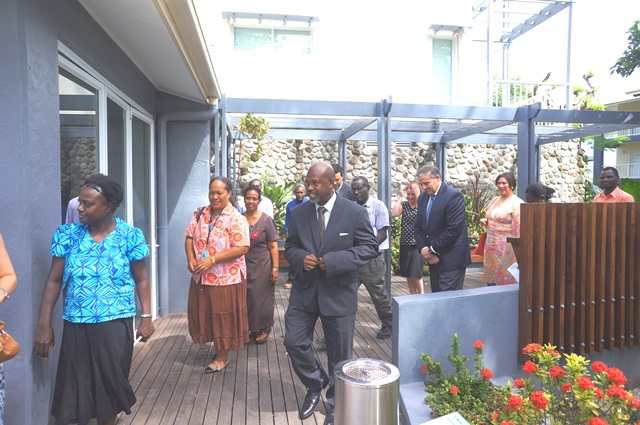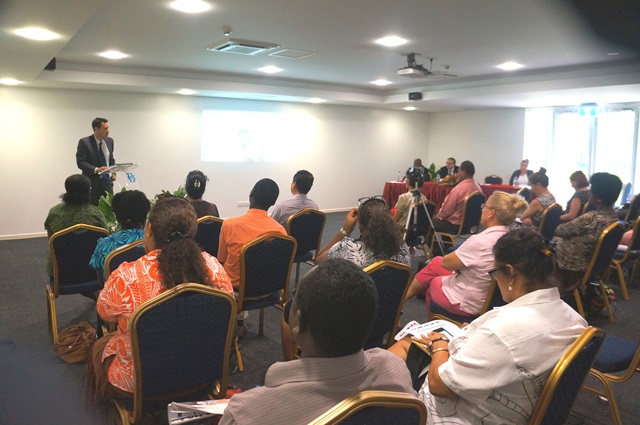Honiara, Solomon Islands (April 21, 2015) - An acceleration of efforts to improve national progress towards an enabling environment in which men, women and young people can make informed choices about their sexual and reproductive health and protect their sexual and reproductive rights will now be possible for five Pacific island nations, thanks to the Government and people of New Zealand.

To be administered through the recently-established New Zealand Pacific Regional Sexual and Reproductive Health Initiative (PRSRHI), the objective of the five-year programme is to improve sexual and reproductive health outcomes, particularly for young men and women and marginalized groups, in Kiribati, Samoa, Solomon Islands, Tonga and Vanuatu.
"New Zealand considers good health to be a critical enabler of sustainable economic development. Without healthy young women and men, a productive workforce and a strong economy are difficult to achieve," Acting Head of the New Zealand Mission Mike Ketchen said.
"In the Pacific, New Zealand works closely with partner governments to enhance the quality of health services and to improve access to these services.
"Improved sexual and reproductive health, including access to family planning and sexual health services, is a key area of investment in Pacific health for New Zealand."
The NZ$6 million fund will be managed by the United Nations Population Fund (UNFPA) Pacific Sub-Regional Office on behalf of the New Zealand Ministry for Foreign Affairs and Trade, which will implement the programme in collaboration with the United Nations Children's Fund (UNICEF) and the Governments and civil society organizations of Kiribati, Solomon Islands, Vanuatu, Tonga and Samoa.
Activities will be aligned to country national health plans and/or reproductive health policies and strategies.
The fund has supported an initial needs assessment and baseline survey related to sexual and reproductive health in the five countries to ensure an informed, country-specific and targeted programming of activities.
"The UNFPA, in particular the staff of the Pacific Sub-Regional Office will not take lightly this show of confidence in our capacity to manage this fund specifically in the area of reproductive health and rights," Dr Laurent Zessler, UNFPA Pacific Director and Representative, said.
"The linkages between poverty reduction, sexual and reproductive health and rights, and population do not appear to be fully appreciated, as reflected in the low contraceptive prevalence rates (CPR) being below 50 per cent and less than 33 per cent for some countries."
The official launch in the Solomon Islands will be attended by a representative of each of the five countries where the programme is being implemented. The gathering will also mark the first meeting of the Programme Steering Committee, which will be responsible for the overall coordination, planning and oversight of the PRSPHI.


